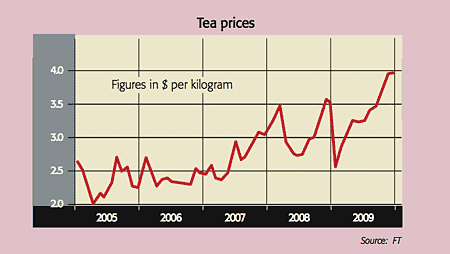Get the latest financial news, insights and expert analysis from our award-winning MoneyWeek team, to help you understand what really matters when it comes to your finances.
You are now subscribed
Your newsletter sign-up was successful
Want to add more newsletters?

Twice daily
MoneyWeek
Get the latest financial news, insights and expert analysis from our award-winning MoneyWeek team, to help you understand what really matters when it comes to your finances.

Four times a week
Look After My Bills
Sign up to our free money-saving newsletter, filled with the latest news and expert advice to help you find the best tips and deals for managing your bills. Start saving today!
Equities' recent rebound is highly unlikely to mark the start of a long-term bull market, as a note on pan-European stocks by Morgan Stanley points out this week. The bank's study of 19 previous major bear markets shows that long periods of 'range trading' are typical after the initial slide and rebound as "structural problems in the real economy" prevent a new sustainable bull run from getting going. It's likely to be a similar story this time.
One problem is that European governments will have to repair their lousy government finances in the next few years. Across the 15 western European EU members, the budget deficit is expected to hit 7.4% of GDP and government debt 82% of GDP in 2010. By comparison, the Stability and Growth Pact governing the eurozone limits budget deficits to 3%. A combination of tax hikes, spending cuts and more privatisations will be needed. In addition to fiscal tightening, both banks and household sectors will need to cut their debts over the next few years. These three long-term economic headwinds will hamper growth, creating a "stop-go, volatile" economic cycle and causing "range-bound markets for years to come".
While rebounding growth and earnings look set to underpin stocks for a few more months, the start of fiscal and monetary tightening will cause a correction and the start of a sideways movement of the pan-European MSCI Europe index in a large range between 600 and 1,200, reckons the bank (the index is now around 1,000). The message is clear, says Neil Hume in the FT: "enjoy the rally while it lasts".
MoneyWeek
Subscribe to MoneyWeek today and get your first six magazine issues absolutely FREE

Sign up to Money Morning
Don't miss the latest investment and personal finances news, market analysis, plus money-saving tips with our free twice-daily newsletter
Don't miss the latest investment and personal finances news, market analysis, plus money-saving tips with our free twice-daily newsletter
The big picture: the rising price of a cuppa

The cost of a pack of 80 supermarket own-label teabags has risen by 10% this year to an average of £2.20. And prices look set to go higher.
Global demand for tea has been climbing according to the UN, it rose nearly 5% last year while supply from the key producer nations of Kenya, India and Sri Lanka has fallen amid droughts. Kenya's output was down by an annual 11% in July.
Wholesale prices for top quality tea have reached a record $4 per kilo, and the extent of the global shortage could drive prices up by another 10% to 15%, says Kamal Beheti of McLeod Russel, India's top tea leaf producer.
Statistic of the week
Britain's tax code is now the longest in the world. This year, Tolley's Yellow Tax Handbook contains 11,520 pages and stretches over four volumes, says the tax code's publisher Lexis Nexis. That's more than double the 4,998 pages the code contained in 1997, when Labour came to power. And had the page layout not been changed in 1997 to fit in more words, the code would now stretch to over 12,000 pages, a 147% jump on 1997.
Get the latest financial news, insights and expert analysis from our award-winning MoneyWeek team, to help you understand what really matters when it comes to your finances.
MoneyWeek is written by a team of experienced and award-winning journalists, plus expert columnists. As well as daily digital news and features, MoneyWeek also publishes a weekly magazine, covering investing and personal finance. From share tips, pensions, gold to practical investment tips - we provide a round-up to help you make money and keep it.
-
 Should you buy an active ETF?
Should you buy an active ETF?ETFs are often mischaracterised as passive products, but they can be a convenient way to add active management to your portfolio
-
 Power up your pension before 5 April – easy ways to save before the tax year end
Power up your pension before 5 April – easy ways to save before the tax year endWith the end of the tax year looming, pension savers currently have a window to review and maximise what’s going into their retirement funds – we look at how

